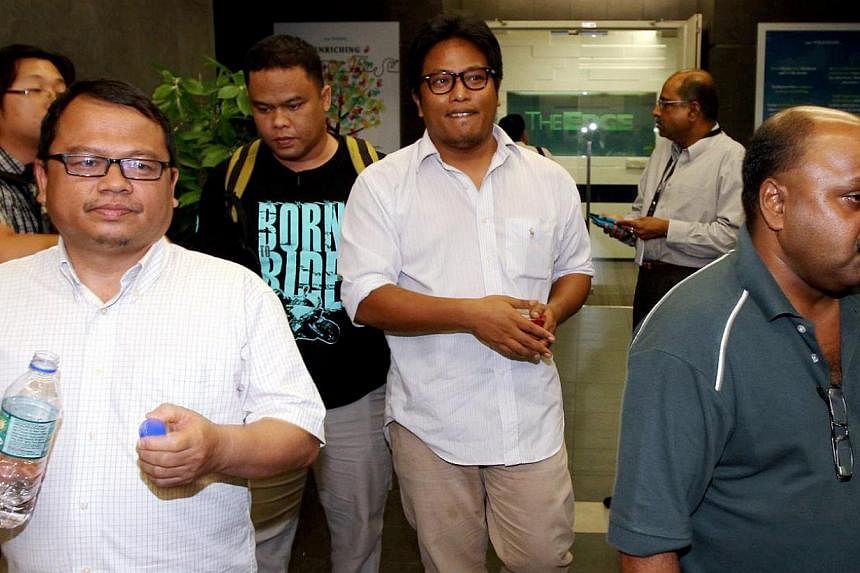The arrest of four editors of The Malaysian Insider (TMI) and their publisher Ho Kay Tat under the Sedition Act has sparked fierce criticism as the government sidestepped accusations of trying to intimidate the media and stifle press freedom.
Geramm, a coalition of journalists and activists, called the arrests "an attempt to use undue influence to silence the media", while the Foreign Correspondents Club of Malaysia condemned the authorities for "unwarranted and high-handed tactics to intimidate those practising their rights to freedom of expression".
The Human Rights Watch group said "Malaysia's use of the Sedition Act to criminalise reporters gravely threatens freedom of the press", adding that "this government is apparently intent on dragging the country down to... the bottom tier of rights abusers in the region".
Inspector-General of Police Khalid Abu Bakar warned in a tweet yesterday that "there will be no tolerance" for any wrongdoing committed under the Sedition Act.
Tourism Minister Nazri Aziz also defended the arrests, saying "freedom of the press" was not a licence to publish false news.
"I think they were rightly arrested for questioning," he added.
However, some members of the ruling Umno party felt it was a mistake to arrest the five men over an article claiming that Malaysia's Malay rulers had rejected amendments to allow Islamic criminal laws to be implemented.
Hudud, or the Islamic penal code, prescribes amputations, stoning and whipping for some offences.
"I think that (the arrests) may be perceived as excessive by the people and may have a backlash on the government in the longer term," Public Accounts Committee chief Nur Jazlan Mohamed told reporters.
Former Umno deputy minister Saifuddin Abdullah also voiced his support for the five men on his Facebook page and called for their release.
Three of them were freed yesterday evening.
The opposition Parti Keadilan Rakyat accused the government of using "scare tactics" to silence the media, while the Democratic Action Party (DAP) questioned why those who felt aggrieved by TMI's coverage could not sue in court instead. TMI is owned by The Edge Media Group.
DAP secretary-general Lim Guan Eng said he had been repeatedly slandered by pro-government media and won defamation suits against Utusan Malaysia and the New Straits Times (NST).
"Yet, no Utusan or NST journalist has had to suffer what TMI has to endure from the harsh tactics of the Inspector-General of Police," he added.
In September last year, Malaysiakini reporter Susan Loone was arrested under the Sedition Act over a report on Penang's voluntary patrol unit, while The Heat weekly had its licence suspended in 2013 after it ran a report questioning Prime Minister Najib Razak's spending.

